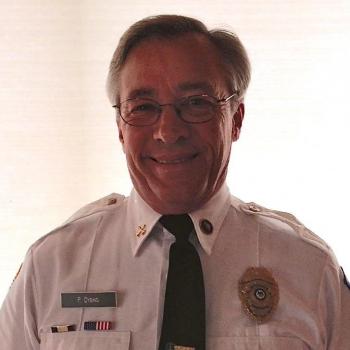Recently our community was justifiably proud to see a Pagan Chaplain receiving an award for religious pluralism from the Hindu American Foundation. We have come a long way in gaining acceptance for earth-based traditions.
This event was also an opportunity to view how another minority community organizes its activities in support of gaining religious tolerance and acceptance on a national scale. Hindus number around two million in the United States, roughly twice the number of the Neo Pagan community. In terms of organization, the Hindu community has banded together and created a national voice on Hindu rights and acceptance. This organization has an office in Washington DC that works full time addressing the issues of civil rights, tolerance and religious pluralism.
So here is the question; are we as a community even half as effectively organized to gain or defend rights for Pagans?
It is tempting to provide a long list of organizations and individuals doing great work for Pagan rights in response to this question. Each of these deserves our respect for all they have accomplished.
Instead, lets address if this plethora of activities is keeping us from acting with unanimity? Is our approach analogous to a group of organizations playing Capture the Flag, where there are wins, but only by small groups and not the community as a whole? Does our duplication of effort squander resources and reflect that Paganism still needs to mature into an effective movement?
Addressing these questions requires putting aside both organizational self-interest and ego. There is no threat in engaging in discussion about the effectiveness of our efforts. Creating a process where our community can “keep eyes on the prize” serves the community as a whole.
We have many traditions that rigorously defend their independence in spiritual practice. This is a strength that allows all to have a voice and a personal relationship with the Devine. We should however, examine if this culture has led to the inability to truly unify in supporting goals that serve the entire community.
The Hindu community is a good example, a religious tradition that has many paths (sects), coming together to achieve their common interest. Efforts have been made to form an organization that serves this role in our community. None have achieved widespread and focused support. Each is a player in the metaphorical game of capture the flag.
There are, on the horizon, new models for achieving our goals. One of these is the example of Patrick McCollum, with a proven track record of fighting for the rights of all Pagan’s, Rev. McCollum sets an example for unity of action. While I personally support his efforts, only time will tell if we are ready to express our collective intent and financial support community wide.
Currently, Rev. McCollum and many other Pagan Rights Activists are spending their own funds, sacrificing their home lives and personal financial security in support of our rights. These individuals, who enjoy our spiritual support, deserve our corporeal support in the form of funds and active participation in creating a unified Pagan Rights Organization.
This call to action is not intended to address the efforts of our diverse community of Interfaith Activists. We as a community are well served by having interfaith representatives from different paths. It is in the area of civil rights, legal challenges, lobbying and legislative action where we need to come together as one voice.
If you are involved in guiding a Pagan organization, at any level, this is a call to start a discussion on how to unify our approach to Pagan rights beyond the boundaries of our traditions and established efforts. Avoid the temptation to offer your group as the answer, be open to unique ideas, and work together with other organizations in a unified effort.
One million Pagans, with one voice and collective intent can achieve the goals we have in common.
In Service to the Goddess,
Peter Dybing











